谜谜秘密觅
有 Medle 的一年,何其有幸。
鸡尾酒里的小石子
不知从什么时候起,时间好像被划成了一小格一小格,我乘着列车走过这圈长长的水槽,在每个格子里倒入彩色的颜料,调成生活的鸡尾酒——更重要的是,在最后放上一块雕刻过的、染上花色的石子。
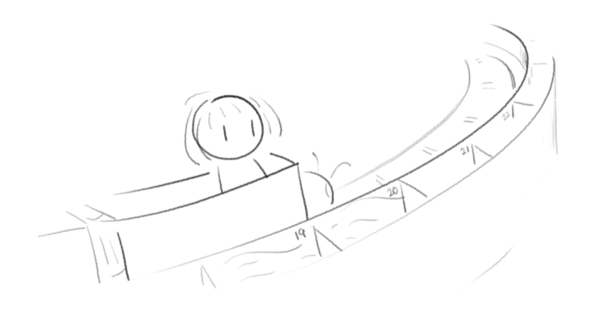
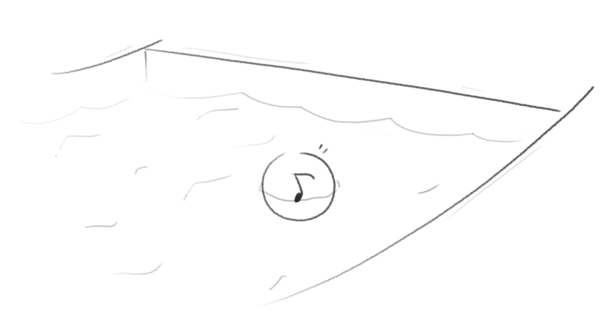
这颗石子叫 Medle。它有个中文名字“谜谜之音”,但是大家喜欢叫它麦兜。每天一个旋律谜题,陪伴了我二十二岁的每一天,也陪伴不多不少的玩家消磨了些许时光。
我是经常被写在谜题最后的那个 Ayu。
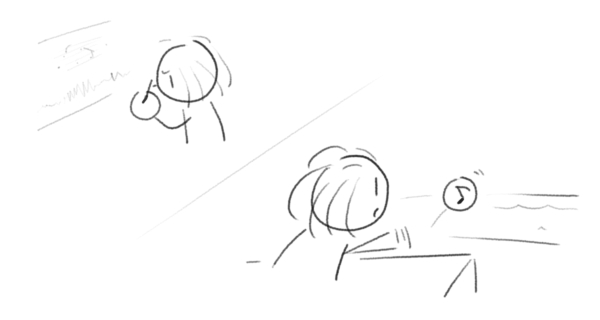
有的时候,我觉得自己像是神话里的那个西西弗斯——贴着午夜的脚步声按下回车键、长出一口气,今天游戏还是没倒闭;但是一切不过是又回到起点罢了,这份工作好像一眼望不到头。
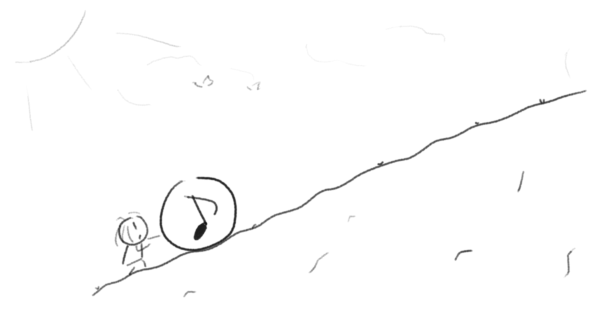
有的时候,我觉得自己因为这些数字和彩色圆圈变得十分疲惫。但是,我可不愿就这么停下来呀。
想着大家在这里近距离触碰音乐的快乐与感悟,想着它获得的这个世界的那么多的爱——
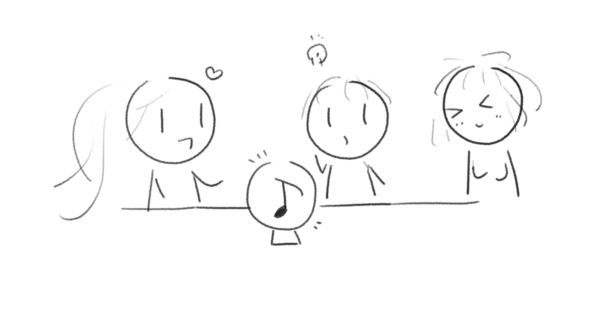
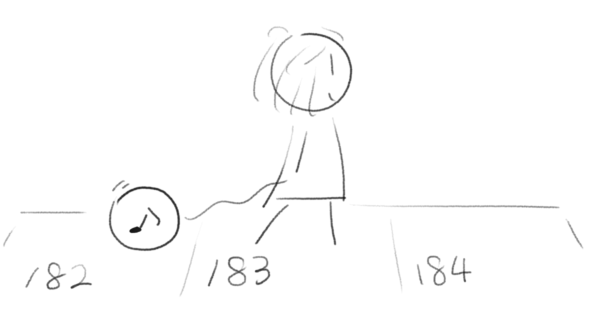
我要让它继续和我一起,一天天地长大。
但我终究只是个碌碌凡人,没有西西弗斯的永生。今天,我想我完成了我的使命。
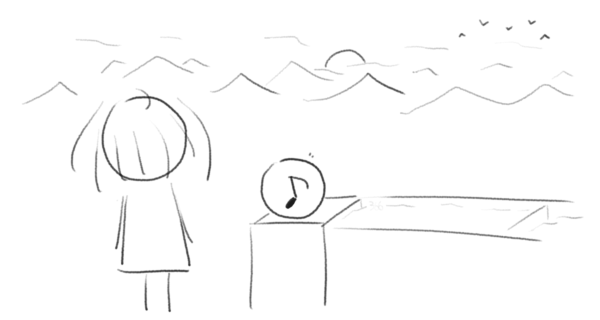
牵着它的手走到这里,接下来的路我只要远远看着它前行就好啦。
七夕与雪花
“Medle・谜谜之音”在今天和我一起度过了生日。此后我不会再为它添上新的题目——所谓周年,就是将时间绕成一圈一圈;每天它的模样都如一年前。这样,它就能在每一位玩家的初遇,展开独属于对方的一整年。
这一切的开端还要从去年寒假在家时说起。那时我想着能不能用音乐里的“和声”概念来制作谜题,但是后来由于易学性与游戏性之间很难找到平衡,就作罢了。后来到了学校,在艺术团训练期间有了旋律猜谜的想法,于是趁着排练间隙做出了整个游戏。
游戏里的第一个谜题是《七夕》,它也是正式游戏中第 165 天的谜题。这是一位日本作曲家创作的管乐曲,描绘的是自己对高中管乐队恋恋不舍的情怀。这首当时正在排练的曲子深得我心,于是它就成了测试阶段的专用曲,也是交给乐队伙伴们内测的第一个谜题。
我甚至考虑过是不是要每天扒一份缩谱、然后用钢琴音色放出声,与游戏中的钢琴声音更贴合,更易于从游戏中学习听辨。幸好后来扒完这一首就放弃了,不然得累趴下。
《七夕》乐曲片段的缩谱。
那次训练汇报演出的第二天恰逢北京冬奥会闭幕,因此节目中有一首器乐与合唱演绎的奥运主题曲《雪花》,优美动听,打动了台下的我。于是两天后游戏开幕的谜题就选择了这首歌。
串烧曲
我尽力顾及了不同风格、时代、地域、作者与演绎者的音乐,也基本不会拒稿;毕竟音乐虽是世界的语言,却也有许多许多的方言,绽放着各异的色彩。
渐渐地,这个游戏有了一些分支,即使我一直没有写完详细的说明,大家也摸索着创造了各自的谜题。它甚至启发了两个新的小游戏:程序代码猜谜 Codle🪐 与和弦猜谜 Chordle🪐。
我一直在一小群认识的友人之间收集投稿,每次收到都会由衷地感到开心、感激。曾经想过开辟一个在线留言板来收集投稿;现有的平台总有些不太合适的地方,因此我自己编写了程序,但是由于极端的完美主义最后没有上线。算是一个小小的遗憾啦。
要怎么结束呢?当我在半年前的夏天告诉一位好友时,她说觉得好可惜,希望我一直做下去。在这一瞬间我有些小小的感动——可是,我毕竟不是机器人呀。我也没有太想把它推广到多远的地方,就这样平平淡淡度过一年,已经是很棒的经历了。
前些日子我想过制作一个小游戏来接替它——我想过用 AI 制作音乐游戏地图,想过歌单猜歌小游戏(这个还是某天梦里想出来的),想过通过算法的辅助让没有学习过的大家也能共同创作音乐,也一直保留着最早的想法:做个“Medle Medley”,把出现过的乐曲选择一些拼接在一起,编写一首混成曲。但是我的工作能力没有那么厉害,时间精力也都有限,几番纠结与挣扎后只好作罢,选择用这篇废话来作结。尽管如此,这些想法说不定之后有一天也会和大家见面呢!
尾声
Medle 的路还要继续走下去,它当然也不会是我最后一次尝试做与音乐相关的小玩意。但还是要在这里谢谢每一位玩家,谢谢你们每一次在这里触碰的音符与旋律。
音乐是属于所有人的。如果愿意的话,请尽情地去倾听、去触摸,去喜爱、去挑剔,去评论、去制造。再让我听到“我不懂乐理”我会伤心的 ok?